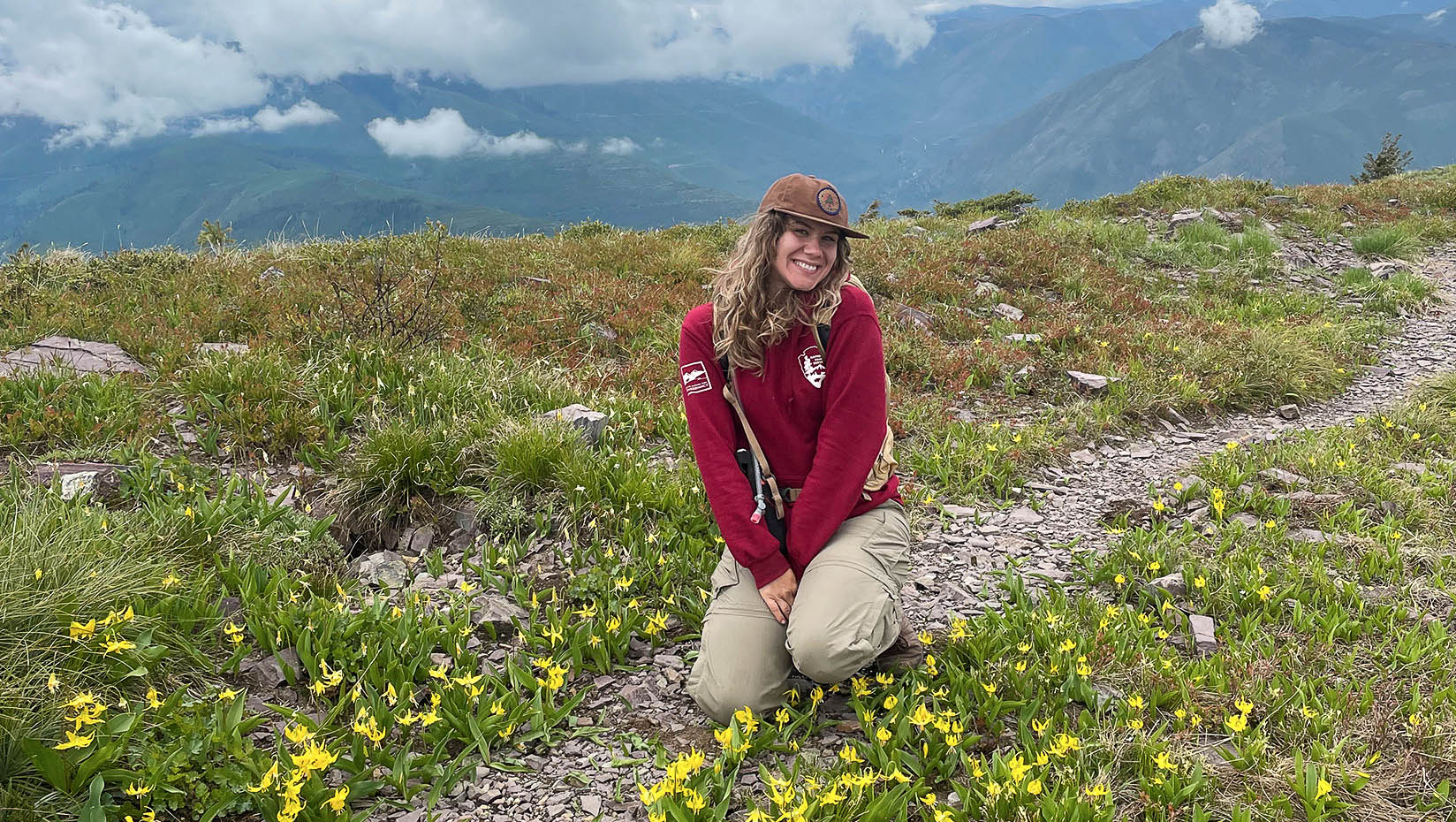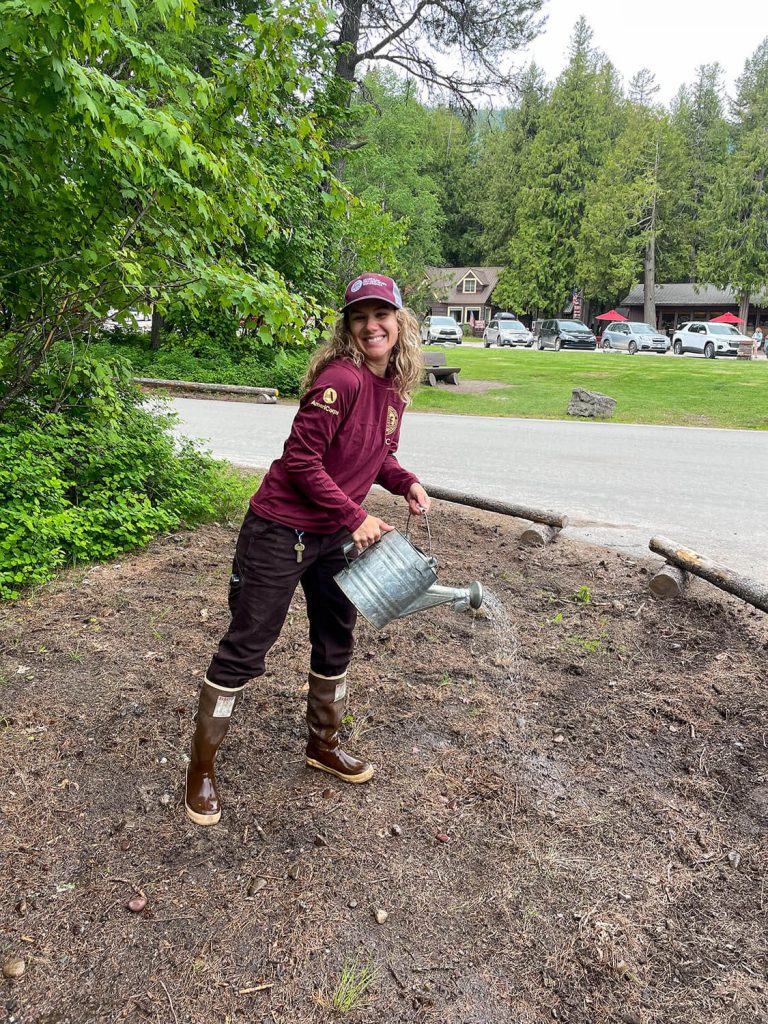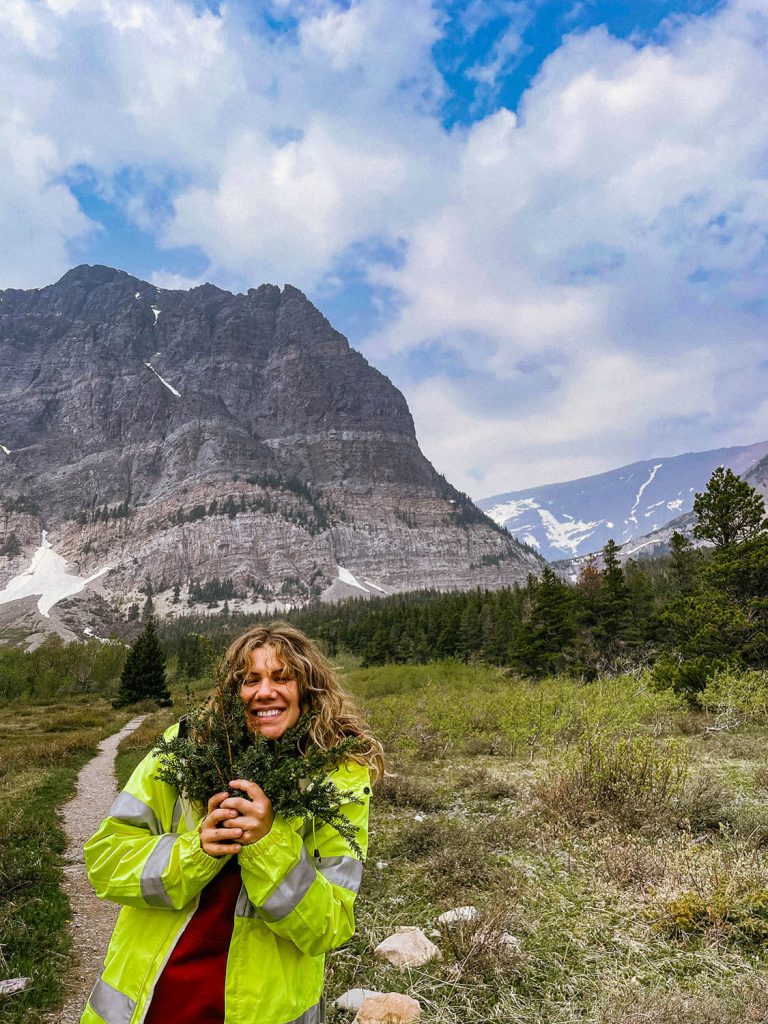
Suzy Violette: Transforming classroom knowledge into real experiences
Suzy Violette has been building on the plant science knowledge she’s gained through her classes at the University of Maine by helping to conserve the natural resources in Glacier National Park in Montana. Violette, a nontraditional student majoring in environmental horticulture, spent this past summer repopulating the lost vegetation at the park’s Native Plant Nursery.
Growing up in Aroostook County, Violette has always had an affinity for the outdoors. She loved to go out with her sisters to collect small reptiles or help her mom with gardening and landscaping around their home. She studied psychology at Husson University from fall 2015 to fall 2016, but she realized that her true passion was in natural sciences. She took time off and learned about the massive impact that the food system can have on the environment, and decided to enroll in UMaine’s sustainable agriculture program in fall 2022. She soon got involved in helping organize the UMaine Greens club, where students grow microgreens in the University’s greenhouse to be used in the dining halls or taken home by the students.

“My education and my experience at UMaine definitely set the structure of my position [at Glacier National Park],” says Violette. “It was so great to be in the field and actually apply the things that I’ve been learning.”
Late last spring, Violette was granted a 14-week summer AmeriCorp internship with American Conservation Experience as a part of the Emerging Professional in Conservation (EPIC) division’s National Park Service (NPS) Academy. Through her position at the Glacier National Park Native Plant Nursery, Violette and fellow plant technicians spent the summer preparing native plant seeds that had been collected from within the park, sowing them into containers and replanting them throughout the park and regularly monitoring them for signs of pests or disease.
Plant technicians also surveyed other areas in the park for signs of damage to plants. Damage often occurs through construction or the creation of “social trails,” created by park visitors who wander off of the marked trails.
Violette says that a major focus of her and the other plant technicians’ work this summer has been with white bark pine trees, a keystone species in the park that was recently added to the threatened species list. White bark pines, like other five-needle pines, are being harmed by blister rust, a fungus that will enter the trees through broken limbs or lesions. The fungus travels through spores and will stay inactive inside of the tree until it reaches its active cycle, during which it releases the spores.
White bark pines are also threatened by the mountain pine beetle. This beetle will form galleries, carved lines in the bark where the bugs have traveled through, inside the pine by chewing out the tree’s tissue that the tree uses to transport food and nutrients throughout its body, known as the phloem. The tree has its own defense mechanisms against these pests, like using resin or sap to trap and push out the bugs, but their natural defenses alone aren’t enough to protect against invasive species. Violette and the other plant technicians aided in protecting the trees by stapling packets of verbeno pheromones to the trees’ trunks. These pheromones mimic a pheromone that the mountain pine beetles give off, tricking them into thinking a tree has already been claimed by another beetle.
For Violette, conservation of the outdoors is about more than just protecting plant life. Violette is passionate about inclusivity and community. She chose to serve for NPS Academy because of their dedication to introduce a diversity of participants from backgrounds historically underrepresented in the National Parks, and to career opportunities with the NPS.
Violette says that the operators of the NPS Academy program are also transparent about their shortcomings in respecting indigenous people in the past and are actively working to ensure that this environment that is so closely tied to their culture and history is rightfully maintained.

“Being out [in Glacier National Park] has given me a new perspective on the importance of native plants and protected areas like natural parks not only for biodiversity, but also for how much of a role they play in the Native peoples’ connection with the earth. It’s just so cool to see,” says Violette.
During the 14-week internship, all the interns lived close to one another in a compound in the park, spending most of their time with one another. Since most of the workers came from different disciplines, Violette says she always had something to learn from her colleagues.
“They’re all so well-versed in their field and that’s probably been my biggest challenge, but now it has turned into my favorite part of the job. I know some plant ID and taxonomy from the East because I’m from Maine, but coming up here to the Rocky Mountains and seeing the vegetation, it’s just so different,” says Violette. “I really don’t have much experience working in this field anyway, it’s all so new to me.”
Violette’s summer experience also convinced her to change her major from sustainable agriculture to environmental horticulture when she returned to campus this fall.
“After spending my summer working with native plants in Glacier with like-minded professionals who have backgrounds in environmental science, forestry and horticulture, I decided that was the right path for me,” Violette says.
Violette has three semesters to complete at UMaine, and she hopes to work again for the Glacier National Park Native Plant Nursery next summer before she graduates in December 2024. After earning her degree, she plans to find a career that will allow her to work with local communities and farmers to improve agricultural systems. Her positive experience working in Glacier National Park has solidified her passion for working in natural sciences, especially fieldwork and research.
“It’s honestly so fun, it feels like summer camp,” says Violette. “I recommend seasonal work in a National Park for anyone interested in living somewhere beautiful and meeting people with like-minded passions who are excited about conservation.”
This story was written by Erin Cabral, 2023 Summer Intern at the UMaine Division of Marketing at Communications.
Contact: Marcus Wolf, 207.581.3721; marcus.wolf@maine.edu
